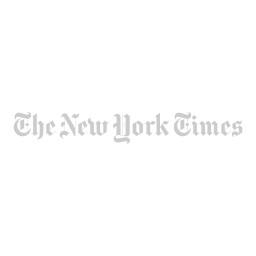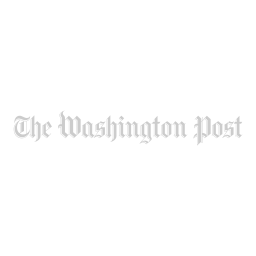My client is upset about our policies.
Image from the #SaveEvents Postpone Don’t Cancel movement started by Daughter of Design
I’ve been fortunate to have worked with wedding pros from 94 countries over my career and I’ve heard from a ton of them this past month – all with similar questions, stories of lost business, uncertainties of what to say to clients who are completely stressed.
We’re all in this together. If you have questions on Coronavirus and your wedding business, feel free to email me at hello@thinksplendid.com. I’ll be sharing my answers here on the Think Splendid blog so that everyone can benefit. I’ll also keep your name anonymous.
Splendid Progress Worth Celebrating
We're an industry that makes our living by celebrating life's milestones, so I'm going to start each of these update posts with a few positive COVID-19 things we can all smile about:
GLOBAL RECOVERY RATE
The recovery rate is now more than 85,500 people, up from 84,000 yesterday.
NEIGHBORS PULLING TOGETHER
This question is from a wedding planner:
We have a client whose wedding is planned for this May and half of their guests are traveling from Europe.
We have suggested they postpone to a later date in September. The bride doesn’t think we will be through this by the new September date and wants to push into 2021.
Several of the vendors we have hired will have change fees if she pushes into 2021 – including us.
She is now really upset and not understanding why this is her problem.
Here is what she said…
"Considering the circumstances, I think it would be not only unfair but also lacking in principal to charge a change of date fee because I can’t find a suitable Friday or Sunday to reschedule our wedding during a pandemic. Even typing that is upsetting; it seems ridiculous.
It doesn’t make sense for us to force a date when our guest list includes 40% international travelers. If we had it our way, we’d be getting married this May, but unfortunately it’s not our way and 2021 seems more reasonable and can at least guarantee that this situation has passed.
Choosing September and crossing our fingers may be better for everyone else, but not for us.
Europe is completely shutting down as Italy recorded over 360 deaths in a 24hr period. We will not proceed without his family in attendance, so European travel bans and World Health Organization updates are just as important for us as the US updates.
If our guest list only consisted of domestic travelers, it would be September and with so much excitement. I think July 2021 is the best worry free date for us. I hope that everyone understands.”
She has a point, as no one knows when this will all end and “get back to normal.”
This is a HUGE revenue client for us and we don’t want to upset her. Since we are doing the planning and all design production in-house, we will take a huge loss if they move to 2021.
How would you recommend we handle this?
Answer from Liene:
There are four main areas we need to consider with this particular circumstance:
The timeline of governmental response to the COVID-19 pandemic itself since that will shape the decisions made regarding postponing and selecting a new date for the wedding.
The wedding guests, since they do not live in a place from which they can drive to the wedding.
The financial aspects for you as a wedding business owner.
The vocabulary used in your messaging and communication, since it will play a big part in whether or not your client feels cared for and respected.
PANDEMIC TIMELINE CONSIDERATIONS
Before we can get to the financial and location aspects of this question, we need to consider the realities of the timeline for all of this.
The idea that everything is going to bounce back quickly is not coming from public health experts, it is coming from the leaders of publicly traded companies who are trying to protect the stock market and their shareholders' investments.
This is not a matter of being a “Debbie Downer” or pessimistic thinking.
It is a matter of listening to what true experts like Dr. Anthony Fauci (the director of the National Institute of Allergy and Infectious Diseases who has advised six U.S. presidents on global health outbreaks) are saying right now and taking a scientific, fact-based approach.
Here is some of what we know from experts in the public health, infectious disease, medical, and scientific communities as well as steps taken by various governments:
Italy just surpassed China in number of COVID-19 deaths.
The virus has a 2-14 day incubation period in which people are contagious but don’t yet know they have it because they aren’t yet showing symptoms. It then takes a few weeks to result in either a recovery or death.
Because of this timeline, as well as the lack of adequate testing, most Western countries are not yet considered to have hit the "peak" of spread and infection.
(The 2-14 days of being infected without showing symptoms is also why social distancing and isolation measures are being either heavily encouraged or mandated. Younger people who may not be aware they have COVID-19 are spreading it by going out and about in their normal lives or having people over to their homes.)Many European and North American countries did not respond to this in the same way China and South Korea did, nor in the same timeline. Because of this, we cannot use those countries as an accurate measure for how things in our respective countries will go.
The UK only just decided to close schools beginning this Friday. Almost every other country in Europe had previously closed their schools.
The White House only just yesterday invoked the Department of Defense Production Act, even though public health, crisis management experts, state governors who have no authority over federal matters, and military officials have been recommending this action for weeks.
(The Production Act authorizes the government to order private companies to manufacture the products we need. Right now that specifically means medical equipment that hospitals are low on or running out of (masks, respirators, ventilators, etc).
We will get through this, but we are already well behind the response timelines of China and South Korea. With regards to when social distancing measures will be lifted, event attendee limits raised, and non-essential businesses will reopen, our recovery timeline will look much different.
Unfortunately, this is the reality of where we’re at.
Fortunately, since people are (for the most part) now taking this seriously, following the social distancing advice, and stepping out of the way to let experts do their jobs, we are going to see the much hoped-for improvements in diagnosing methods, treatment, and recovery.
Again, we are focused on authentic optimism over the false promises of toxic positivity. Authentic optimism requires we take honest stock of what’s actually going on so that we can create plans that serve our businesses and our clients in the best way possible.
WEDDING GUEST & LOCATION CONSIDERATIONS
Your bride’s fears about her guests potentially not being able to travel from Europe for a wedding in September are valid.
We also need to keep in mind what we know about human nature: as much as we would love everyone to be purely rational all the time, we’re often an irrational species. We are frequently driven by emotion rather than logic.
Even with the best-case scenario of everything bouncing back super quickly and all the public health and infectious diseases experts being proven wrong about how this will go, and if everywhere in the world is 110% back to normal in September . . . well, people are still people.
It is unlikely that wedding guests will feel safe getting on a plane to cross an ocean right away. A lot of people have anxiety about traveling and it's not unusual for doctors to prescribe Xanax for people getting on a long-haul flight even when everything is normal. Expecting people to get on a plane as if nothing had ever happened is somewhat unreasonable. Sure, as seasoned travelers, you or your clients may have no fears flying so soon after a pandemic, but a lot of people will, including the ones your clients love most and want in attendance on their big day.
Waiting until July 2021 is most likely going to be the best option for the emotional needs of your client’s wedding guests based in Europe as well.
BUSINESS & FINANCIAL CONSIDERATIONS
Two things are true right now for wedding professionals when it comes to handling wedding cancellations and postponements:
Every decision you make in your response to this impacts your word of mouth marketing in the future. Both clients and suppliers alike will remember who was gracious and who was not.
This doesn't mean you bankrupt your own business or family in order to be the hero for your couples. Any “people pleasing” or co-dependent tendencies you may have cannot be in the driver’s seat of your decision making right now.
Pandemics aren’t fair to anyone, so this isn’t necessarily a case of being unfair or fair. What's fair isn't necessarily what's right.
It isn't fair that you can’t carry on with business as usual, but that doesn't mean it's right to charge clients extra just because you know they’ll pay it.
It isn't fair that your client has to move her wedding date and has extra costs incurred because of it, but that doesn't mean it's right for her to expect you to absorb every new cost to the detriment of your own family and employees instead of billing her.
Fortunately, as a business owner you are in a position to relax your policies on a case by case basis. Since this is a big client for you, I'd recommend relaxing whatever policies you are able to in order to keep her as a happy client and key referral source. Again, I do not recommend going beyond what will put your business or family in true financial jeopardy.
It’s important to be as transparent with your clients on this as you can.* Explain that profits aren't your focus right now, and that this fee is to cover your costs, some of which may include:
Payroll so that your employees will still have their jobs for this wedding next July and also so they can provide for their own respective families.
Especially in the United States, where healthcare is largely tied to employment, being able to keep your employees on health insurance during a health pandemic should be a priority as much as possible.Taxes including business income taxes, federal and state unemployment taxes, business property taxes, excise taxes (in the wedding industry, this mostly hits rental, floral, event production, and other companies that use big trucks for deliveries), self-employment taxes on owner's share, etc
Health insurance and any other government-mandated employer costs including Worker's Comp, etc.
Overhead costs: office or warehouse rent/mortgage payments, electric/water/internet and other utilities required to run your business.
This refers to the true overhead costs of running your business, not the nice-to-have overhead costs like attending a wedding conference or treating your team to a year-end weekend retreat at a spa.
(As someone who makes a significant portion of my income as a speaker at wedding conferences and workshops, trust me, I am not thrilled about this reality.)
VOCABULARY & COMMUNICATION CONSIDERATIONS
Part of the problem here is one of messaging. Couples are seeing the wedding industry push a (worthwhile) #PostponeDon’tCancel message in the press and on social media, but then when they go to postpone they’re getting hit with the words “change fees.”
To engaged couples, this feels like a bait and switch.
The resulting feeling is: “You wanted me to postpone and now you want to profit off that, too? Eff you.”
Remember, as an industry we get smeared by the media with the big, bad “wedding industrial complex” narrative all the time. Brides and grooms are already primed to be suspicious that wedding companies are ripping them off.
The #PostponeDon’tCancel message itself isn’t the problem. It’s a good message and one we should be encouraging as much as possible. Needing to charge a certain amount in order to have the financial ability to devote more time and resources to the new wedding date isn’t even the actual problem.
The term “change fee” is the actual issue here. The phrase comes across as you benefiting by taking advantage of a pandemic.
If possible, I recommend using a different term* to denote any new money you may need to collect in order to move the date to 2021.
Since you are handling the design production in-house in addition to the wedding planning itself, the term “production retainer” might work. Explain that this money needs to be paid in 2020 in order to ensure you can subcontract your preferred lighting company, tent rentals, and installation crews before someone else books them for the new date.
My advice boils down to this: if you have to charge your client in order to move the date into 2021 instead of later in 2020, then do so, as far as you’re legally able. If you have a cushion that allows you to flex your policies and reduce or waive the fee, then do that.
Don't feel guilty (easier said than done) about prioritizing the well-being of your family and your employees' families first.
*This is not legal advice and should not be construed as such. Remember that laws and regulations vary by city/county/state/province/country. Please check with your own attorney for legal advice on your specific situation.
More questions?
When I say we’re all in this together, I mean we are all in this together. I am not a blogger, I am a business consultant and speaker. This blog is not sponsored nor ad supported and is not how I make my income. Since we are all in this together, I am not charging consulting fees to answer questions related to COVID-19.
I will continue answering Coronavirus-related wedding business questions from ANY wedding, event, or hospitality professional, located anywhere in the world, here on the blog over the next few weeks and possibly longer, so that anyone, anywhere in the world can access the information they may need for their business at any time.
I’ll be continuing to work through the questions sent in so far here on the blog so that we can all navigate this together as best we can. Please send any questions you have to hello@thinksplendid.com and remember there is no such thing as a dumb question.
I’ll be keeping the names anonymous so you don’t have to worry about being attached to a question in a Google search or in case you don’t want a colleague or competitor to know what’s on your mind.
Written by
LIENE STEVENS
Liene Stevens, the founder and CEO of Think Splendid, is an author, speaker, and award-winning business strategist. Armed with $2000, a healthy work ethic, and an undeserved dose of privilege, Liene bootstrapped Think Splendid from a scribble in a notebook to a successful wedding business consulting firm with a client list spanning 94 countries.

















